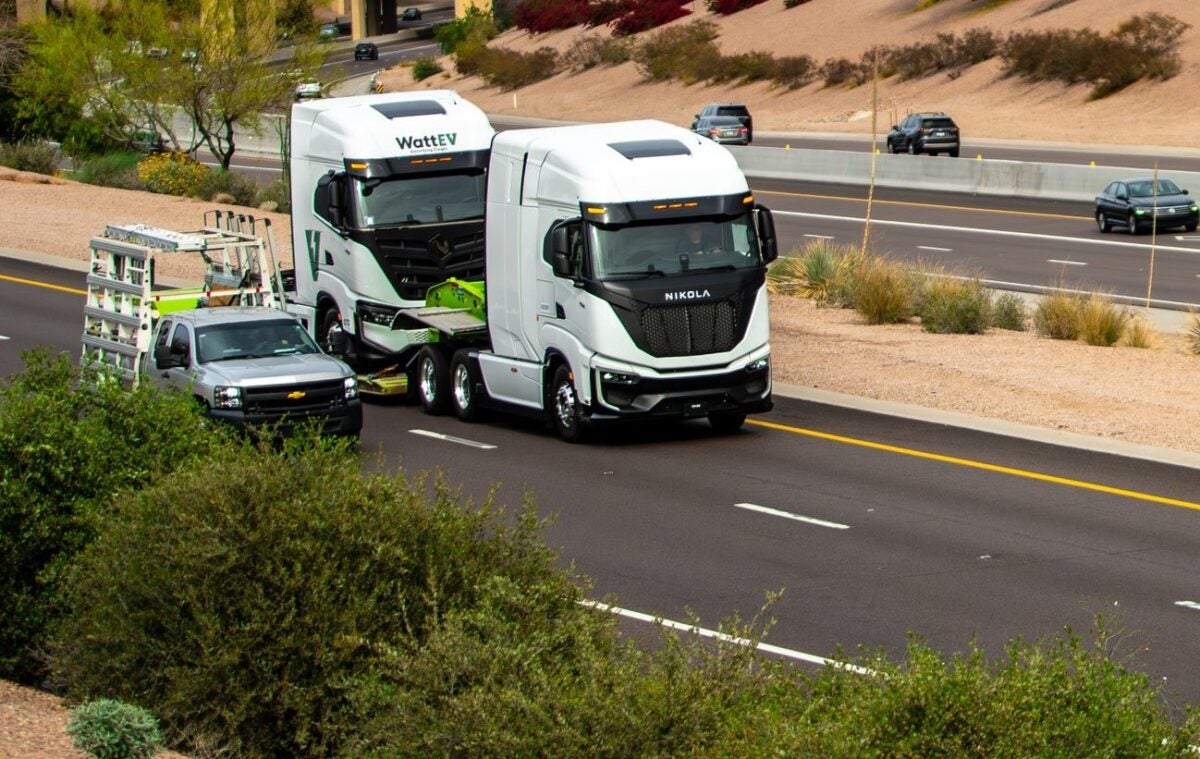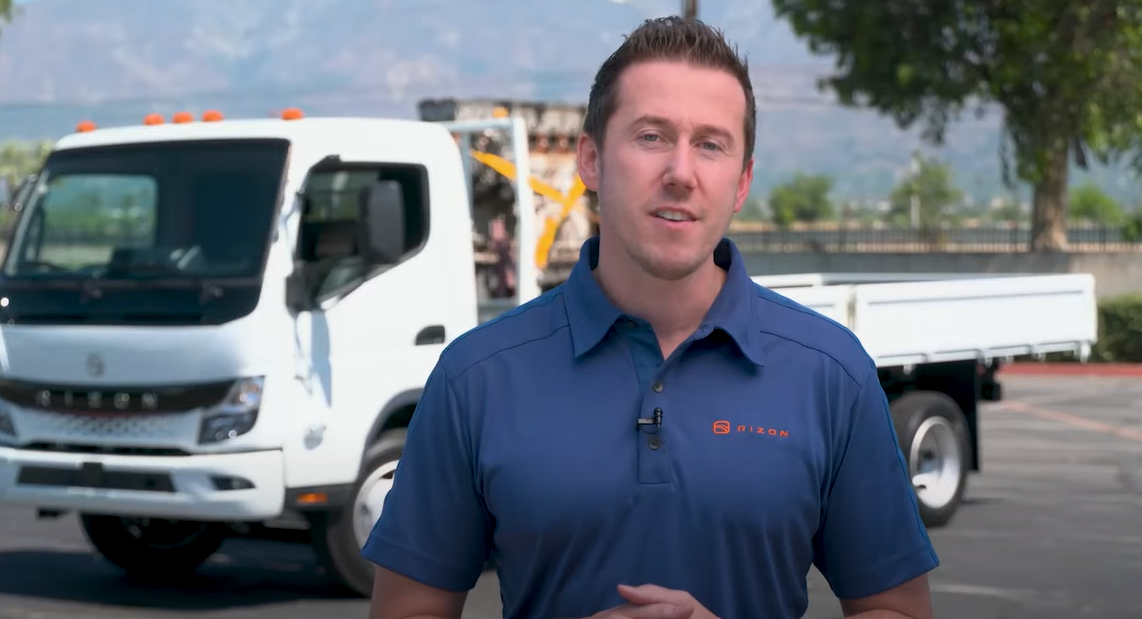No one asked for another season of the soap opera featuring Nikola Corp. and its convicted founder, Trevor Milton. But here we are.
Heigh- ho, heigh-ho, it’s off to court we go
When last we left the ongoing drama that is Nikola Corp. and its convicted founder, Trevor Milton, the fuel cell truck and hydrogen fuel distribution company had been unable to collect on a $167.7 million arbitration award in November. Milton moved in January to get the award overturned.
Last month, Nikola sued Milton in the U.S. District Court for the District of Arizona, seeking a temporary restraining order (TRO) under the Arizona Uniform Fraudulent Transfer Act. It wanted to prevent Milton from selling or moving his company stock until he had paid up.
Court rejects Nikola bid for restraining order
The court in Phoenix declined the TRO, saying Nikola lacked evidence and probably couldn’t prove its case. But it ordered Milton to answer questions about his sale of more than 37 million Nikola shares through his M&M Residual LLC from Feb. 22 through March 13.
That reduced Milton’s Nikola holdings to just under 13.3 million shares, a far cry from holdings that once made him worth billions on paper.
Nikola claims Milton is playing keep-away — “to frustrate, hinder and delay” the company’s ability to collect on the arbitration award,” according to the lawsuit.
About half of the award — $83.3 million — would flow from Nikola to cover the unpaid portion of a $125 million Securities and Exchange Commission fine. The agency fined Nikola in 2021 in conjunction with Milton’s false statements about the company’s technological achievements and prowess.
Buying votes for board seats?
Nikola theorizes Milton may have given shares to some existing stockholders to support the five candidates he is pushing for seats on Nikola’s board of directors. Milton nominated the alternate slate for June’s board meeting. That prompted Nikola to issue a preemptive news release urging shareholders to vote against the slate.
The five “have no public company experience, add no skills or experience to the board, and indisputably lack the depth of experience that the current Nikola board members bring to the company,” Nikola said in the release.
Milton largely ignored the Arizona court order for discovery he was supposed to make by Wednesday.
Enough already, Nikola says in SEC filing
In a filing with the Securities and Exchange Commission on Tuesday, the company said “Nikola’s disgraced founder and a convicted felon” is trying to take over the company by working with the purchasers of Nikola assets, notably the Badger electric pickup truck that was scrapped by Nikola after a tentative deal with General Motors to manufacture the truck fell apart.
When Nikola sold the Badger and Powersports assets to EMBR, a company majority-owned by Dave Sparks (aka “Heavy D”) and attorney Cole Cannon, the deal said Milton was to have no involvement because Milton “had caused enough reputational, financial, and operational damage to Nikola.” Sparks and Cannon are two of Milton’s board nominees.
“It is clear via social media and SEC filings that these provisions of the agreement were not adhered to, and as a result legal action is being taken against EMBR, Mr. Cannon and Mr. Sparks, as well as Mr. Milton,” the filing said.
Milton, who until recently owned about 4% of Nikola shares, faces four years in prison from his conviction in October 2022 on one count of securities fraud and two counts of wire fraud. No surrender date has been set. Milton is appealing his sentence.
Recalled Nikola trucks being returned to customers
Even with the distractions from Milton and the delisting threat, Nikola is making good on its pledge to begin returning recalled fire-prone battery-electric vehicles (BEVs) to customers.
A Nikola fuel cell electric vehicle hauls a repaired Watt EV battery-electric truck back to the truck-as-a-service provider. (Photo: Nikola)
Nikola recalled 209 Tre BEVs in August after battery fires in three trucks. No one was injured. The company paid to have the trucks returned to its plant in Coolidge, Arizona. Nikola removed the battery packs from Romeo Power, a wholly owned subsidiary it had purchased a year earlier because Romeo was in financial straits.
Nikola has not identified the source of replacement battery packs. But it has been testing packs from China-based Contemporary Amperex Technology Co. A spokesperson said the battery supplier or suppliers likely would be identified during the company’s first-quarter earnings call May 7.
The company expects all the recalled trucks to be back in customer possession by the end of the second quarter or early in the third.
“We’re starting to get our trucks back,” Salim Youssefzadeh, CEO of truck-as-a-service provider WattEV, told me.
WattEV also received the first two Volvo VNR Electric models from a pending order of 50 trucks. Volvo recalled more than 400 VNR Electrics. Rather than ship and recall the trucks, it held on to them until they were fixed, Youssefzadeh said.

Nikola said Thursday it manufactured 43 fuel cell electric trucks during the first quarter and wholesaled 40 of them.
Rizon sees medium-duty electric tucks as ‘gateway drug’
Class 8 electric trucks are big, expensive and hard to find adequate charging for in short order.
Medium-duty electric trucks, specifically Class 4 and 5 models, have fewer challenges. That could make them habit-forming, according to Alex Voets, general manager of Velocity EV, which has 15 dealerships in California, Arizona, Tennessee, Virginia and North Carolina. It is the exclusive distributor of Daimler Truck’s Rizon brand.
“People are a little bit timid. You know, kilowatt hours, chargers, a lot of departments involved in a decision [on purchasing] electric vehicles,” Voets told me. “So, we really see Rizon as kind of a gateway drug to electrification.”
First and only electric competitor in its classes – for now
The cabover models imported from Japan are arriving in Velocity EV dealerships, where education helps ease fears and misconceptions about driving on battery power instead of gasoline or diesel. Rizon trucks operate on either easy-to-get alternating current (AC) or harder-to-get direct current (DC).
“It is great to understand the processes early on to understand efficiencies, understand electric powertrains, get drivers used to these new technologies before you make decisions either at scale with these vehicles or at scale with larger vehicles,” Voets said.
For the moment, Rizon is the only major truck maker offering the Class 4-5 chassis cab that can be upfitted with a variety of “top hats,” from a cargo box to a dump body. Japan’s Isuzu Motors Ltd. expects to offer a 2025 model year Class 5 truck featuring a 19,500-pound gross vehicle weight rating, a homegrown battery-electric platform and an all-new cab design in the first half of this year.
Numerous startups as well as Workhorse Group and Freightliner Custom Chassis Corp. offer battery-powered medium-duty step vans.

Like a slowdown in electric car purchases, battery-powered trucks also are catching on more slowly than expected. A delay in implementing the California Advanced Clean Fleets rule is partly responsible.
“I think the tipping point really is to see vehicles in operation,” Voets said. “I think now that we finally see vehicles actually hitting the street with a body actually making deliveries, there’s a lot more information in the market. Customers can talk to each other about their experiences. They don’t only have to listen to the manufacturers.”
Motiv Power Systems has been building electric chassis for medium-duty trucks for 15 years. Though it has turned out just 300 or so trucks, founder Jim Castelaz is confident that Motiv’s experience combined with regulations and incentives for electric trucks will keep the business competitive.
Truck Tech episode No. 61: Behind the doors where GM develops fuel cell technology
With more than a half-century of hydrogen fuel cell development, General Motors is finally making commercial strides with potential customers. The more power-hungry the project, the more the automaker sees its value.
That’s it for this week. Thanks for reading and watching. Click here to get Truck Tech via email on Fridays. And catch the latest in major events and hear from the top players on “Truck Tech” at 3 p.m. Wednesdays on the FreightWaves YouTube channel. Your feedback and suggestions are always welcome. Write to aadler@freightwaves.com.










